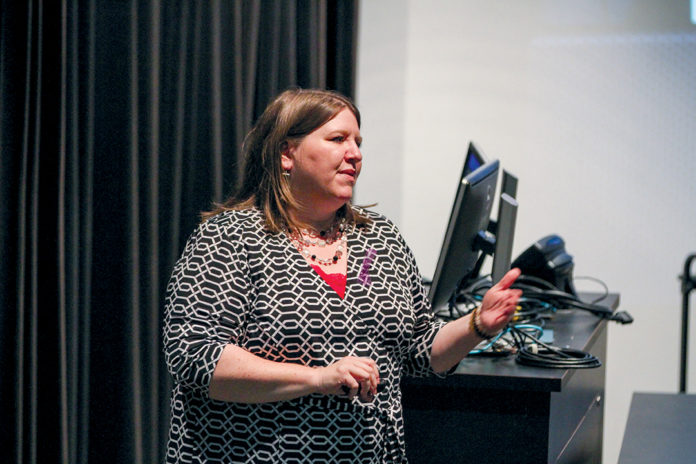
By Arion Crenshaw | Contributor
Tonya Lewis, Baylor director of media communications, had everyone in the audience at the “No More: Dispelling the Rhetoric of Victim Blaming” panel discussion close their eyes and think back to their most embarrassing memory. A few moments later she asked them to imagine if that memory went viral, was shared and retweeted. Lewis was trying to get attendees to get a small glimpse of what victims of sexual assault go through.
The department of communication and the Communication Coalition of Minority Students sponsored the forum Wednesday afternoon, which was a proactive way to help the Baylor community view, discuss and hopefully respond to issues of sexual assault.
People tend to react to issues, especially sexual violence, in an uninformed, highly emotional and accusatory way for the victim and the accused, organizers of the forum said. If victims feel as if they would be ostracized, belittled and/or blamed as well as shamed for the assault they have endured, the likelihood that they will not come forward may increase, said Dr. Rosalind Baty, the founder of the Communication Coalition of Minority Students and senior lecturer in the communications department.
Baty, one of the event organizers, said she believes if victims don’t seek the help they need, it will, in turn, create a culture of silence and internalized oppression, which has physical, mental, social and spiritual implications.
“Pointing fingers and engaging in discursive practices that belittle victims is not the answer to healing and dispelling the hurtful myths regarding sexual assault,” Baty said.
Pam McKown, a social work therapist at Journey Counseling and panelist at Wednesday’s event, said secondary trauma usually occurs by uninformed people trying to help and take matters into their own hands. After a victim is possibly beaten, bruised, violated and/or humiliated, too often they are grilled with questions that imply that it was their fault: “What were you wearing? Did you do something to provoke it?” The constant reminder of that encounter is degrading for the victim, McKown said.
McKown told the audience to allow themselves to be vulnerable and raw with a victim so that “we don’t overlook the victim with the encounter.”
Dr. Suzanne Enck, a panelist and associate professor of women’s and gender studies and director of general graduate studies at the University of North Texas, described how violence is common in U.S. culture. Pervasive attitudes, norms and practices all encourage sexual violence, she said.
Enck also said that recent generations have learned rape culture at an early age, whether by listening to songs degrading women or wearing shirts that say “Lock up your daughters.” These examples send the message that boys are on the prowl and that women are ‘asking for it’ if they are out and about, Enck said.
Lewis, who also spoke on the panel, gave an example of how she teaches her 9-year-old son to respect women. As a culture, if those of authority can teach the new generation about consent at an appropriate age, maybe more people would shy away from being the problem, she said.
McKown reminded the audience at the end of her talk to be diligent and be part of the solution.
“If you decide to do nothing after this conversation, you’re walking in ignorance,” McKown said.





